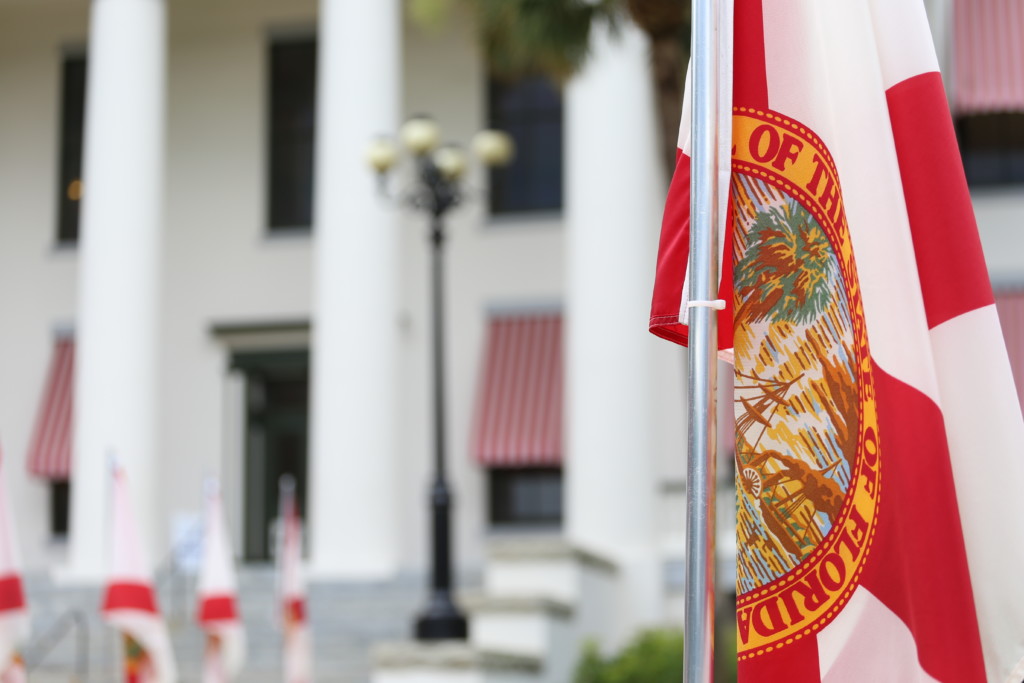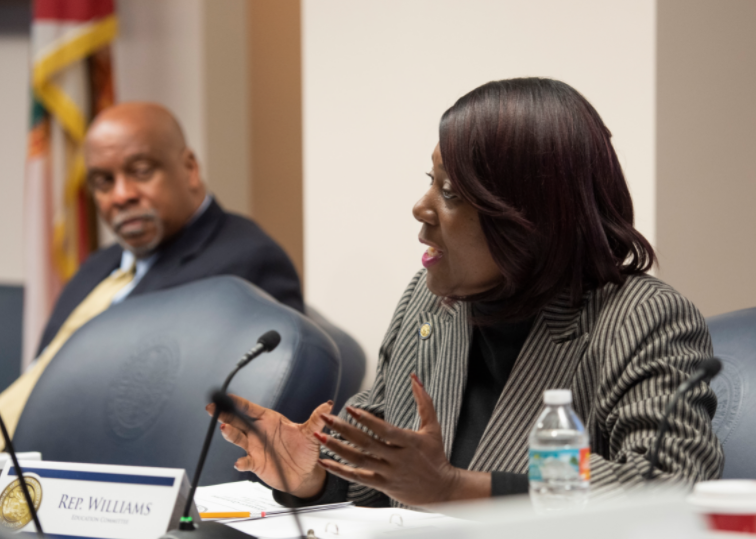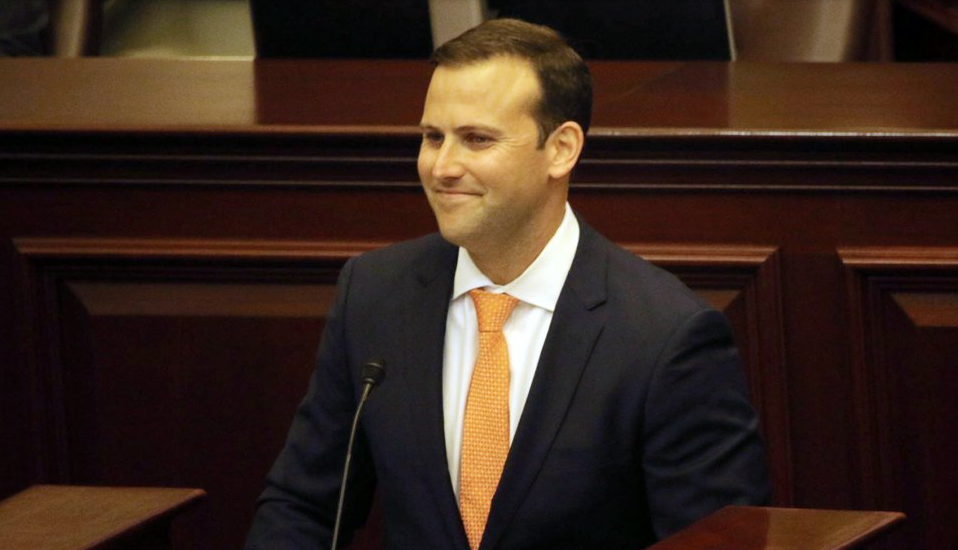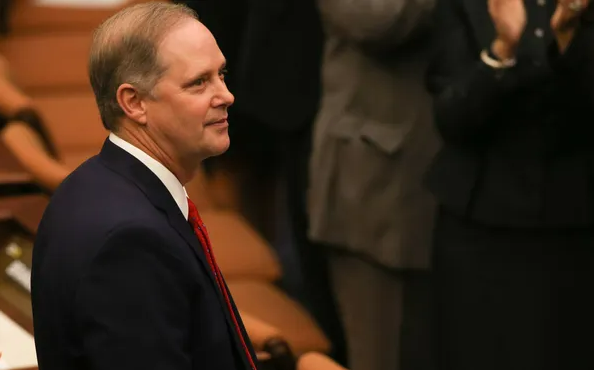
On this episode, Step Up For Students President Doug Tuthill and Legislative Affairs Manager Alexis Laroe discuss the changes coming to education choice programs in Florida following the 2022 legislative session in Tallahassee. The education budget passed by the legislature this year is the largest in the history of the Sunshine State.
While education choice programs did not greatly expand as in prior years, many smaller changes did occur. The two discuss those changes and the impact they will have on Florida’s choice families.
They also discuss the heated debate that took place this year surrounding parental rights in education, and the role public education has historically played in the social engineering of society.
"I believe public education was really tremendously funded this session for everybody … If you look around, there are really a lot of great things to celebrate."
EPISODE DETAILS:
 The 2022 Florida legislative session drew to a close Monday with lawmakers passing a record $112.1 billion budget for the fiscal year that will start July 1.
The 2022 Florida legislative session drew to a close Monday with lawmakers passing a record $112.1 billion budget for the fiscal year that will start July 1.
Many education-related items were included in bills tied to the budget, including changes related to state school choice scholarship programs:
HB 3, related to law enforcement, also passed both chambers and is headed, along with the budget, to Gov. Ron DeSantis for his approval.
This bill will allow the dependents of law enforcement officers to qualify for Family Empowerment Scholarships for Educational Options and to be excluded from the caps for both that scholarship and the Family Empowerment Scholarship for Students with Unique Abilities.

Patricia Williams, D-Fort Lauderdale, was one of three Democrats who joined Republicans Wednesday in voting for House Bill 5101.
A bill that would streamline the approval process for K-12 state school choice scholarships got the green light on Wednesday in House Appropriations Committee.
House Bill 5101 passed with little debate, with Democrats Anika Omphroy of Sunrise, Nicholas X. Duran of Miami, and Patricia Williams of Fort Lauderdale joining the Republicans to vote in favor of the bill.
Though the bill deals primarily with virtual learning, it also addresses the issue of cross-checking names of scholarship students to ensure they are not enrolled in district schools. Under the bill, the cross-check would be done after the scholarship money is distributed as opposed to before, which had resulted in payment delays for schools.
The bill also would remove the four deadline dates by which scholarship funding organizations must approve Family Empowerment Scholarship applications and the Florida Department of Education must verify that students are not prohibited from receiving the scholarships. Instead, the Department would transfer scholarship funds once it receives student documentation from the scholarship funding organizations.
A similar bill, Senate Bill 1348, currently is in the Appropriations Subcommittee on Education. Members of the Senate Education Committee approved it on a 6-3 vote along party lines last month.
The bill, which the committee amended, would make technical fixes to HB 7045, which the Legislature passed last year. That bill, described as the largest expansion of education choice in the nation, extended scholarship eligibility to more Florida students, including children from military families, and folded the Gardiner Scholarship Program for students with unique abilities into the Family Empowerment Scholarship Program.
In August, the McKay Scholarship program for students with certain special needs will be merged with the Family Empowerment for Unique Abilities.
SB 1348 addresses challenges that resulted from such a large expansion and smooths the process for families and participating schools. The bill still requires the Florida Department of Education to cross check the list of participating students against public school enrollments. Additionally, it removes a requirement that cross checks be completed before funds are awarded, eliminating a delay in payments to families.
According to a staff analysis, the bill also requires the Department to adjust scholarship payments to school choice scholarship funding organizations; recalculate the state allocation for school districts upon completion of cross checks; and transfer scholarship funds to the scholarship funding organization upon receipt of necessary documentation from the organization to verify the student’s participation.
 Editor’s note: Throughout the week, the Florida Department of Education is recognizing the 14th annual Celebrate Literacy Week, Florida! Florida House Speaker Chris Sprowls, R-Palm Harbor, joined Gov. Ron DeSantis and Florida Education Commissioner Richard Corcoran at a news conference at a Wakulla County elementary school to highlight the New Worlds Reading Initiative, a statewide book delivery system that sends one free book each month to students in kindergarten through fifth grade. More than 81,000 students have signed up for the $200 million program approved during the 2021 legislative session. Here are excerpts from Sprowls’ remarks. To see the news conference, click here.
Editor’s note: Throughout the week, the Florida Department of Education is recognizing the 14th annual Celebrate Literacy Week, Florida! Florida House Speaker Chris Sprowls, R-Palm Harbor, joined Gov. Ron DeSantis and Florida Education Commissioner Richard Corcoran at a news conference at a Wakulla County elementary school to highlight the New Worlds Reading Initiative, a statewide book delivery system that sends one free book each month to students in kindergarten through fifth grade. More than 81,000 students have signed up for the $200 million program approved during the 2021 legislative session. Here are excerpts from Sprowls’ remarks. To see the news conference, click here.
The power of getting a new book and getting a child excited about reading, excited about learning about the characters inside the pages they are going to discover, is the reason the Florida House came up with the New Worlds Reading Initiative at the beginning of the last legislative session … Our principals and our teachers and our schools like this one have done such an amazing job in making sure our children are learning to read.
We’re proud to be fourth in the nation in fourth grade reading and making sure that we’re making those strides, but what really makes a state like Florida not just good, but great, is about our ability to acknowledge when we can be even better. And I think that’s what this initiative is all about.
When Education Commissioner Corcoran and the governor and I and others sat down and looked at the statistics in reading across our state, we found some alarming things. We realized that 88 percent of individuals who didn’t graduate from high school were struggling readers in third grade. We realized that 43 percent of kindergarteners were not reading at proficiency when they started in elementary school.
We realized that even though we’re doing better than so many of our national peers, it’d be 250 years if we kept on current trends to get to where we needed to be in reading proficiency in the state of Florida. And none of us thought that was good enough. Which is where you get the New Worlds Reading Initiative. It’s all designed because, if a child can read, they can learn. If they can learn, then anything is possible.
What we are doing in the state of Florida no other state has undertaken. No other state is taking a moon shot like the New Worlds Reading Initiative. And prioritizing the fact that we believe that every child has the opportunity to learn, to be successful, and to be on a pathway to prosperity.
 Editor’s note: The Florida Legislature began its 60-day session today with Gov. Ron DeSantis’ state of the state address and opening speeches from the Senate president and the speaker of the House of Representatives. Senate President Wilton Simpson, R-Spring Hill, cited passage of the nation’s largest education choice expansion in 2021 as a top accomplishment from the last session. Here are his remarks.
Editor’s note: The Florida Legislature began its 60-day session today with Gov. Ron DeSantis’ state of the state address and opening speeches from the Senate president and the speaker of the House of Representatives. Senate President Wilton Simpson, R-Spring Hill, cited passage of the nation’s largest education choice expansion in 2021 as a top accomplishment from the last session. Here are his remarks.
We expanded school choice. One of the cornerstones to breaking generational poverty is to ensure that we have a strong, school choice options so that parents can direct their children's education.
I am proud to say that Florida continues to lead the nation in school choice. One out of every four children in America that is enrolled in a school choice program lives right here in Florida. We are the promised land for education-minded families.
And senators, I am especially proud that we continued to prioritize students with unique abilities, children from low-income families, children in foster care, children from military families, and siblings of children already in these scholarship programs.
You’ve heard me say, “A rising tide lifts all boats.” School choice is the tide that allows every single child, regardless of where they come from, to rise.
 The Florida Legislature’s annual session begins today and runs through March 11.
The Florida Legislature’s annual session begins today and runs through March 11.
Unlike last year, when state lawmakers passed the nation’s largest expansion of education choice, this year is expected to be marked by more modest changes aimed mainly at improving efficiency for schools and families.
Here is an overview of education choice-related bills that have been filed so far.
BILL NO: SB 1348
TITLE: Educational Choice Scholarships
SPONSOR: Sen. Manny Diaz – Hialeah Gardens
WHAT IT WOULD DO:
For more information, click here.
BILL NO: SB 1294
TITLE: Individual Education Plan Meetings
SPONSOR: Sen. Joe Gruters, R – Sarasota
WHAT IT WOULD DO:
For more information, click here.
BILL NO: HB 911
TITLE: Early Learning Scholarship Program
SPONSOR: Rep. Rick Roth, R — Palm Beach Gardens
WHAT IT WOULD DO:
For more information, click here.
BILL NO: SB 980
TITLE: Virtual Instruction Programs
SPONSOR: Sen. Manny Diaz Jr., R — Hialeah Gardens
WHAT IT WOULD DO:
For more information, click here.
BILL NO: SB 956
TITLE: Public Schools
SPONSOR: Sen. Dennis Baxley, R — Lady Lake
WHAT IT WOULD DO:
For more information, click here.
BILL NO: HB 225
TITLE: Charter School Charters
SPONSOR: State Rep. Fred Hawkins, R — St. Cloud
WHAT IT WOULD DO:
For more information about both bills, click here and here.
BILL NO: HB 487
TITLE: State Scholarship Programs — 2022
SPONSOR: State Rep. James Bush III, D — Opa Locka
WHAT IT WOULD DO:
For more information, click here.
BILL NO: SB 622
TITLE: Florida Institute for Charter School Innovation
SPONSOR: Sen. Manny Diaz Jr., R-Hialeah
WHAT IT WOULD DO:
For more information, click here.
BILL NO: SB 506
TITLE: Hope Scholarship Program
SPONSOR: Sen. Manny Diaz Jr., R-Hialeah
WHAT IT WOULD DO:
For more information click, here.
BILL NO: SB 488
TITLE: Education Recovery Scholarship Accounts
SPONSOR: Sen. Jason Brodeur, R-Lake Mary
WHAT IT WOULD DO:
For more information click here.